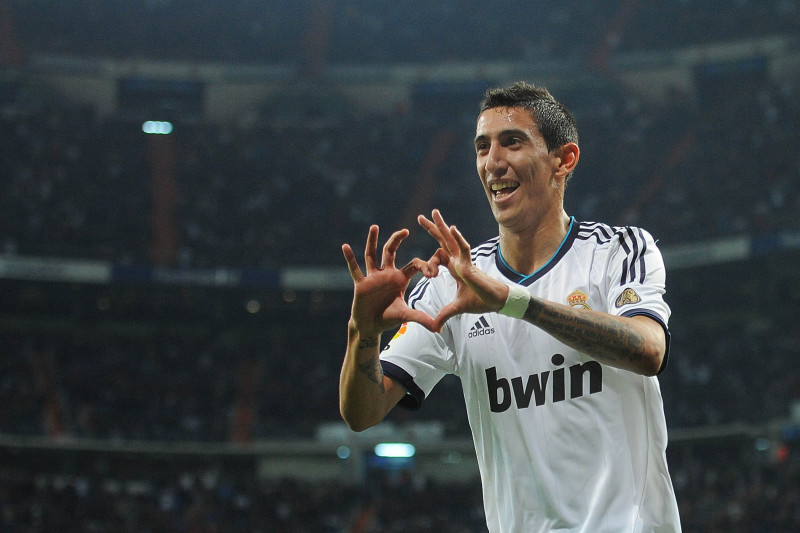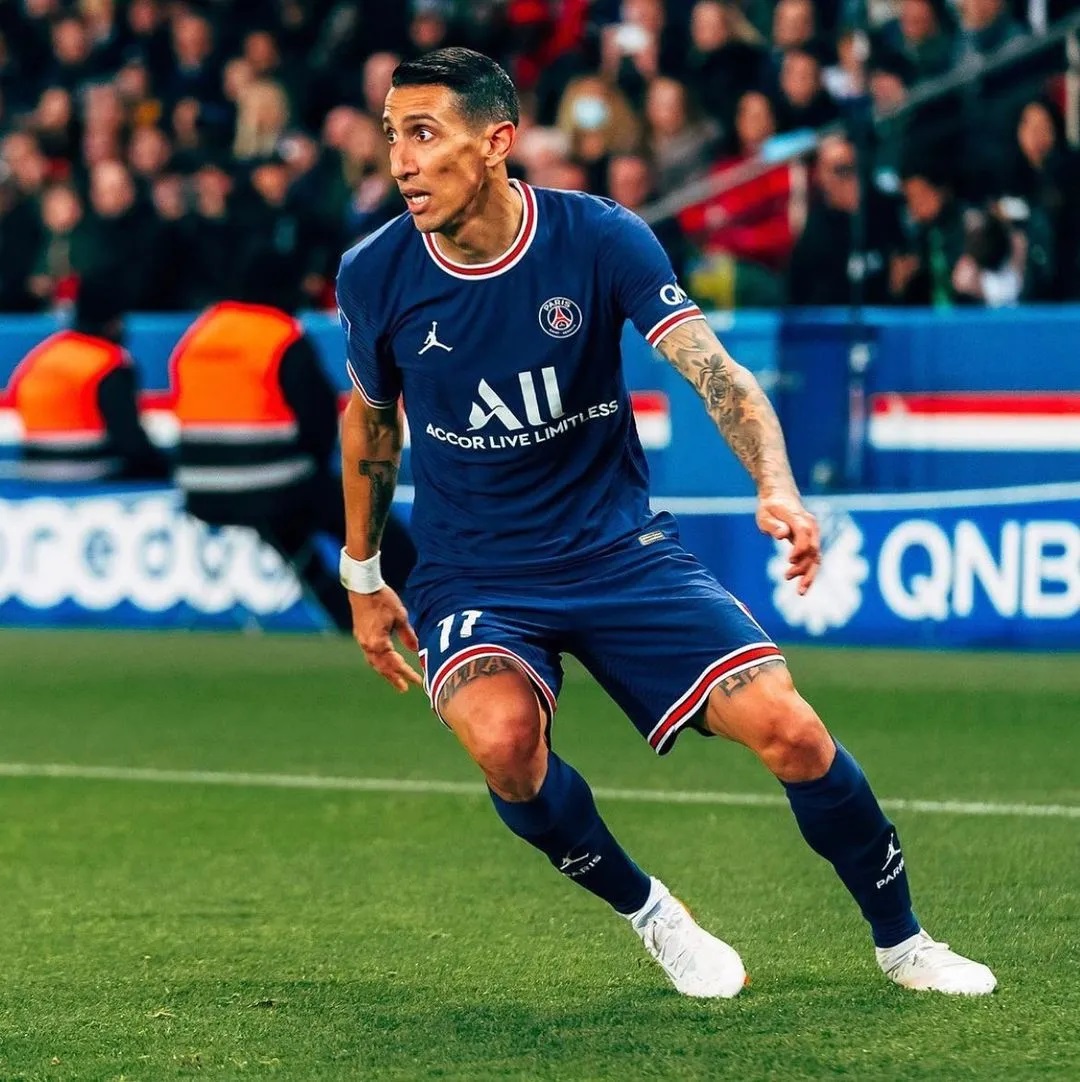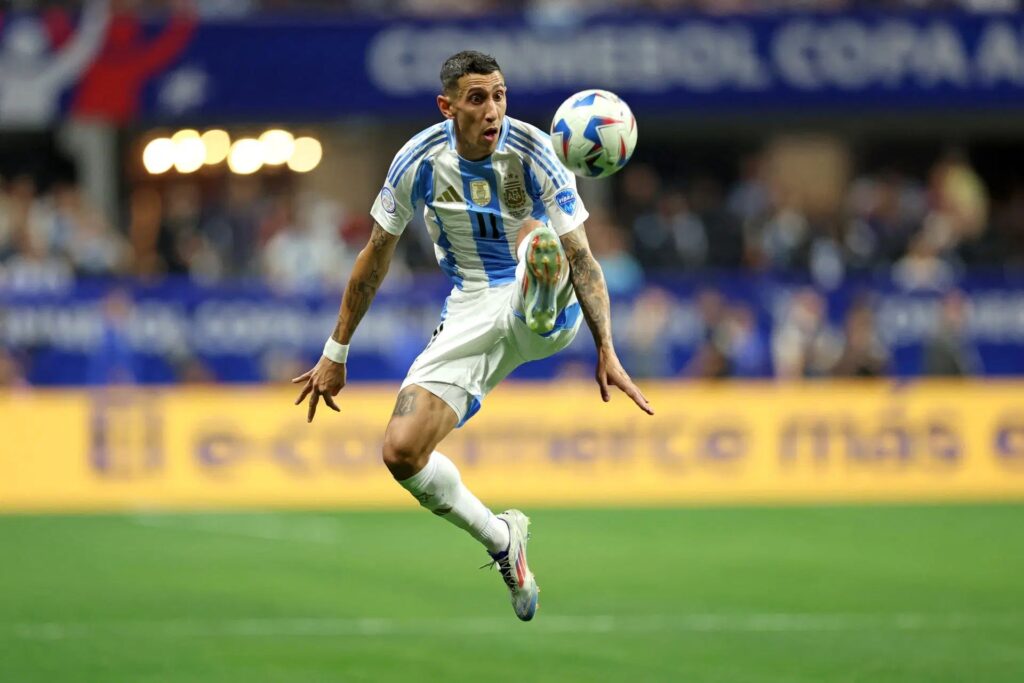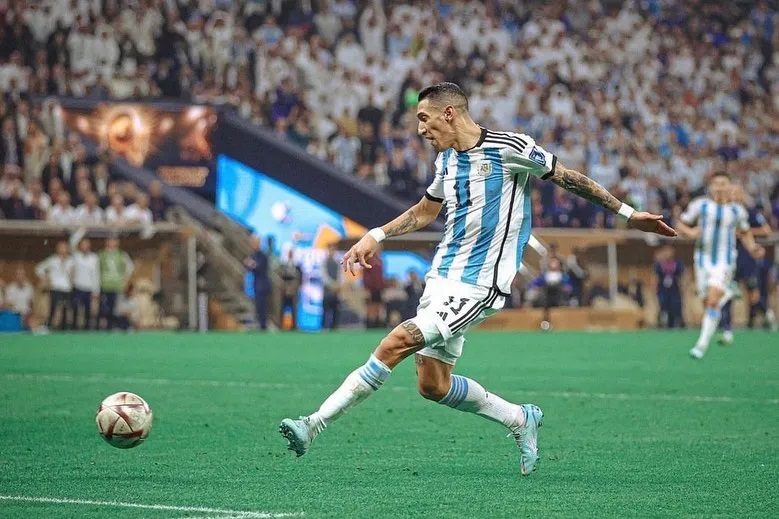As I reflect on the career of Ángel Di María, a player whose journey I have followed with great admiration, I am reminded of the magic that football can bring. Di María, often called “Fideo” due to his slender frame, has graced the game with his talent, resilience, and passion. His career of almost two decades demonstrates his dedication and skill. Now that he has retired after winning the Copa America 2024, it’s time to look back at the highlights and challenges that defined his incredible journey.
Humble Beginnings and Early Stardom
Born on February 14, 1988, in Rosario, Argentina, Di María’s love for football was evident from a young age. His parents, who worked tirelessly to support the family, saw their son’s boundless energy and enrolled him in a local football club at the age of four. His talent quickly shone through, and by the time he was 17, Di María had made his professional debut with Rosario Central.
His performances at Rosario Central caught the eye of European scouts, and in 2007, he made the move to Benfica. This transition marked the beginning of Di María’s European adventure. At Benfica, he showcased his extraordinary dribbling skills, speed, and creativity. His ability to take on defenders and deliver precise crosses made him a standout player. It wasn’t long before the giants of European football took notice.
Real Madrid: Dreams Realized and Challenges Faced

In 2010, Di María signed with Real Madrid, a move that would define the next chapter of his career.
At the Santiago Bernabéu, he evolved into one of the most dynamic wingers in the world.
His first season with Real Madrid was a resounding success, as he helped the team win the Copa del Rey and provided numerous assists to Cristiano Ronaldo and Karim Benzema.
However, his journey at Real Madrid was not without its challenges. Contract disputes and injuries marred his early seasons. Despite these setbacks, Di María’s resilience shone through. Under the guidance of José Mourinho, he battled through muscle injuries and eventually became an integral part of the team. Mourinho’s faith in Di María, combined with his partnership with Ronaldo, brought out the best in him.
The arrival of Carlo Ancelotti in 2013 marked a turning point in Di María’s career.
Ancelotti’s decision to move him to a more central role allowed Di María to showcase his versatility.
This change paid off spectacularly in the 2013-14 season, culminating in Real Madrid’s historic La Décima, their 10th UEFA Champions League title. Di María’s man-of-the-match performance in the final against Atlético Madrid, where he set up Gareth Bale’s decisive goal, is etched in the memories of football fans worldwide.
A Difficult Transition: Manchester United
In the summer of 2014, Di María made a high-profile move to Manchester United. The transition to the Premier League was challenging, and despite a promising start, injuries and tactical misalignments hindered his performance. The high expectations and pressure to deliver at Old Trafford were immense, and Di María’s time in the Premier League was a stark contrast to his success in Spain. However, it was a learning experience that prepared him for the next chapter in his career.
Paris Saint-Germain: Revival and Records

Di María’s move to Paris Saint-Germain (PSG) in 2015 marked a new chapter in his career. In Paris, Di María became a cornerstone of a team that dominated French football. His impressive record of 18 assists in one season (2015-16) in Ligue 1 is proof of his exceptional playmaking skills. PSG’s domestic success was unquestionable, but European glory eluded them. Despite this, Di María’s performances, especially in key Champions League matches, were often brilliant. His ability to rise to the occasion in big games was a hallmark of his career.
During his time at PSG, Di María formed a lethal partnership with Neymar and Kylian Mbappé, contributing to one of the most formidable attacking trios in European football.
His vision, creativity, and knack for scoring crucial goals made him an invaluable asset. The 2019-20 season saw PSG reach the UEFA Champions League final for the first time in the club’s history, though they fell short against Bayern Munich. Nonetheless, Di María’s contributions were pivotal in their journey to the final.
A Brief Stint with Juventus and a Return to Benfica
After a season with Juventus, where he continued to display his class, Di María returned to Benfica in 2023. This move brought his career full circle, as he returned to the club where he first made his mark in Europe. His performances in the 2023-24 season showed that even at 36, he still possessed the magic that had made him a star. This final chapter in his club career was a fitting conclusion to his European journey, demonstrating his undying passion for the game and his enduring quality as a player.
National Glory and Heartbreak

Di María’s international career with Argentina is a story of perseverance. He debuted with the senior national team on September 6, 2008, against Paraguay in a World Cup 2010 qualifier. Over 16 years, he earned 144 caps, placing him third on the all-time appearances list for La Albiceleste, behind only Lionel Messi and Javier Mascherano.
Despite early setbacks, including losses in the finals of the 2014 World Cup and the 2015 and 2016 Copa America, Di María never lost faith.
His moment of redemption came in the 2021 Copa America final against Brazil, where he scored the only goal to secure Argentina’s first major trophy in 28 years. This victory was followed by another crowning achievement at the 2022 World Cup, where Di María’s contributions were instrumental in Argentina’s triumph.

The 2024 Copa America marked the end of Di María’s international career. Fittingly, his final match was a high-stakes encounter against Colombia in Miami. As he prepared for his swan song, Di María reflected on his journey with gratitude, stating, “I’ll always be grateful to this generation who gave me everything, helped me win what I always wanted, and today, I am leaving like this. It could not be better.”
In his final appearance, Di María once again demonstrated his class and composure, contributing to Argentina’s victory and cementing his legacy as one of the nation’s all-time greats.
His career statistics are impressive: 30 goals and 29 assists for Argentina, making him one of the most productive and influential players in the history of La Albiceleste.
A Hero’s Legacy

Di María’s career can be seen as a mosaic of perseverance, brilliance, and unyielding dedication. He navigated through challenging transitions with grace, and his contributions on the field have been nothing short of legendary. Each chapter of his career, from Rosario Central to Real Madrid, PSG, and back to Benfica, tells a story of a player who never stopped evolving and striving for excellence.
Di María’s journey is a powerful reminder of what can be achieved through hard work and determination. His story is one of inspiration for aspiring footballers around the world. Thank you, Fideo, for the memories, the magic, and the moments of brilliance. Your legacy will live on, and you will forever be remembered as one of the finest to have graced the beautiful game.






